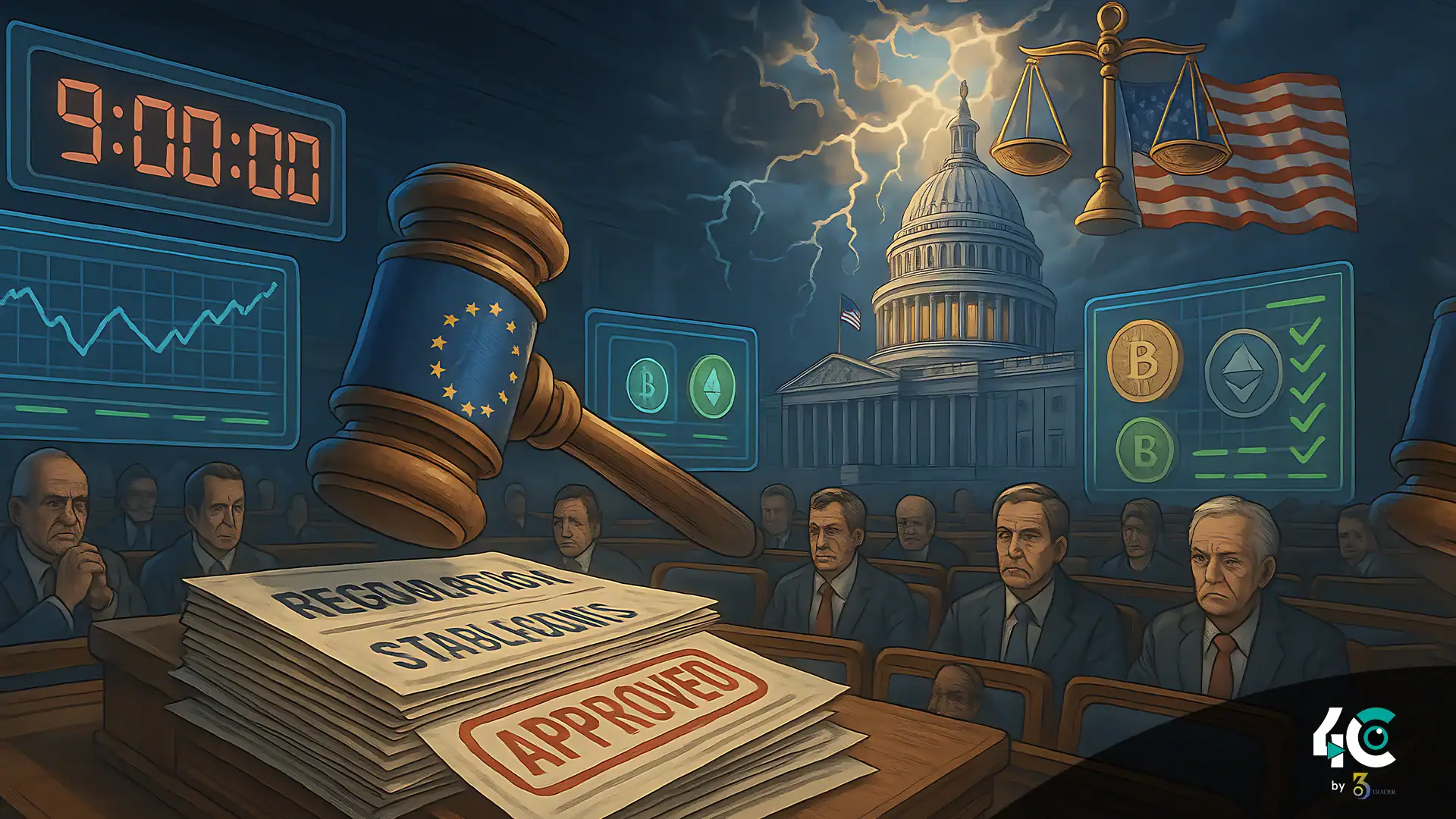House Breaks Record to Push Forward Key Crypto Bills
After a historic nine-hour procedural standoff, the U.S. House of Representatives finally reached an agreement on a set of major cryptocurrency bills, signaling a turning point in the national conversation on digital assets.
Wednesday’s drawn-out vote—the longest in recent House history—paved the way for three important bills: the CLARITY Act, a CBDC prohibition, and the GENIUS Act focused on stablecoin regulation. These measures are now tied to the National Defense Authorization Act (NDAA), a must-pass bill that often gains bipartisan support.
CBDC Ban Becomes a GOP Priority
At the center of the Republican push was a ban on central bank digital currencies. Many in the GOP argue that a digital dollar could violate personal privacy and increase government surveillance. House Speaker Mike Johnson and Majority Leader Steve Scalise secured the inclusion of the CBDC ban in the NDAA, unlocking a path forward for the rest of the crypto legislation.
Representative Tim Burchett, who initially resisted the deal, announced on social media that he ultimately supported it after compromises were reached. Some lawmakers remained wary of the GENIUS Act, suspecting it could create a loophole for CBDC-like technologies, despite its language explicitly banning such actions.
Three Crypto Bills to Watch
As part of the agreement, three crypto-related bills are moving forward:
- The CLARITY Act: Establishes a legal framework for digital asset markets.
- The Anti-CBDC Surveillance Act: Blocks any federal attempt to implement a CBDC.
- The GENIUS Act: Introduces comprehensive regulations for stablecoins.
A vote on the GENIUS Act could happen as early as Thursday, while the other measures may be considered next week. Former President Donald Trump reportedly gave his blessing to the strategy during a private call with GOP leaders, underscoring his continuing influence on Republican crypto policy.
Longest House Vote in History
Wednesday’s nine-hour procedural vote surpassed previous records, including the vote for Trump’s “One Big Beautiful Bill” tax and spending package. The extended delay highlighted deep divisions among Republicans over how to regulate emerging technologies like crypto.
Still, by attaching the legislation to the widely supported defense bill, party leaders turned the contentious CBDC ban into a strategic advantage.
With consensus finally reached, House leaders are now preparing to pass the crypto bills and tackle other high-priority issues ahead of fiscal deadlines. The momentum behind this legislation could mark a new chapter in how the U.S. government regulates digital currencies.



























